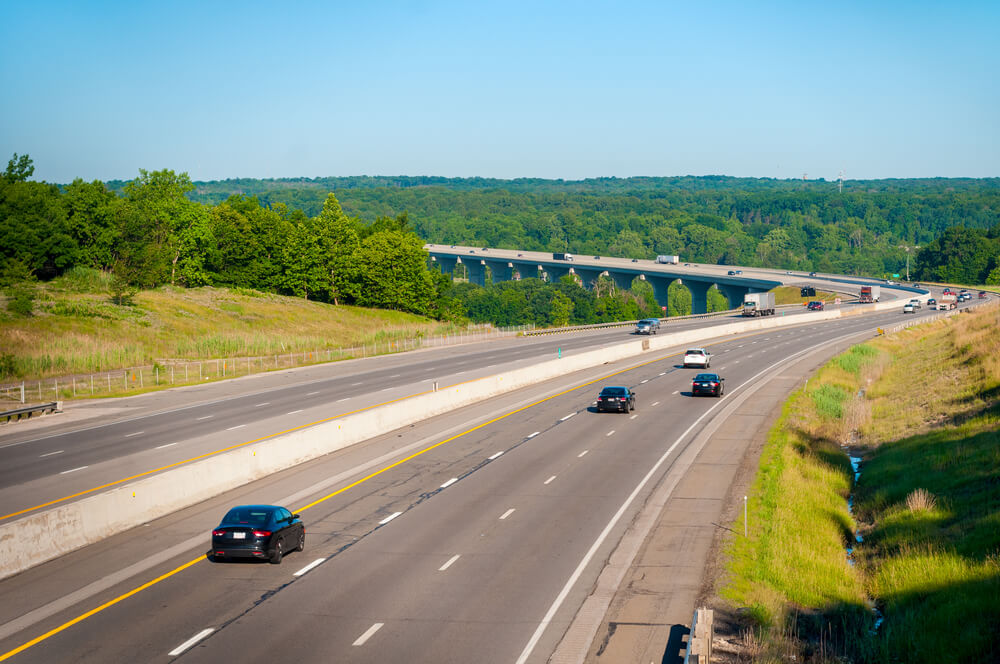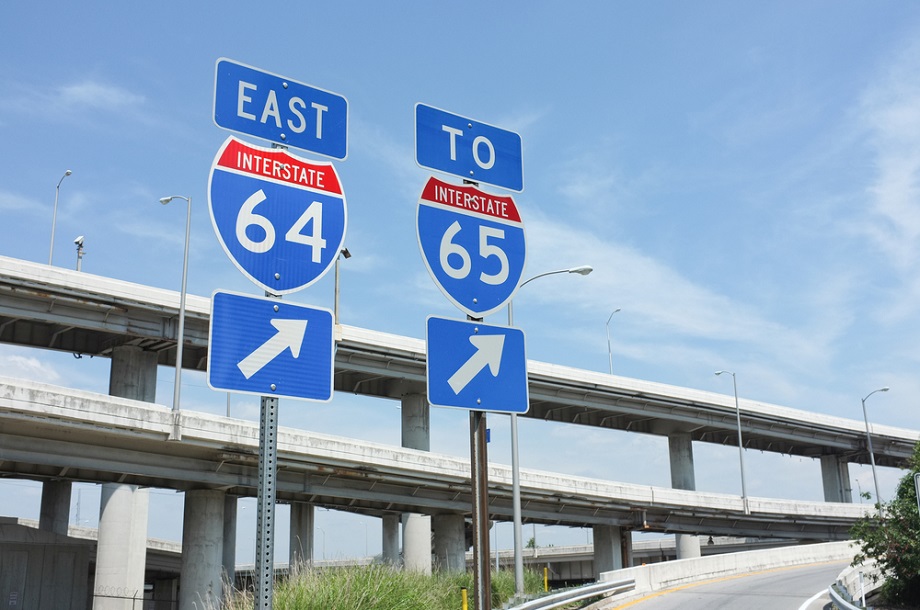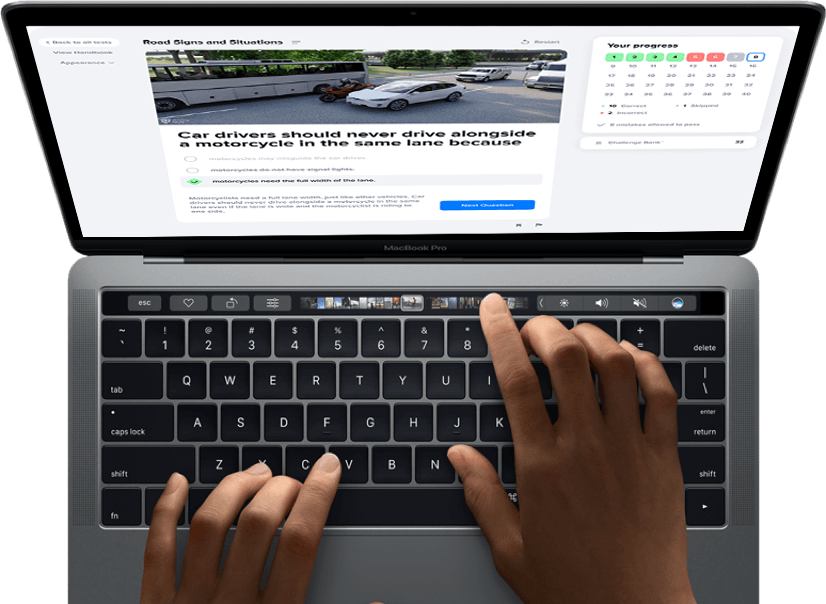Driving on an interstate highway takes skill and knowledge of how this particular type of roadway is designed to be used. Many people find that they are apprehensive about driving on interstate highways. Although there is no reason to be nervous about driving on these types of roads, highways require even more caution and alertness than local streets. Before driving on an interstate highway for the first time, it is helpful to have a general idea of how these roads function. Interstate highways are usually composed of two lanes going in each direction but can sometimes have more lanes to accommodate heavier traffic around metropolitan areas. Separating the north and south or east and west lanes is a median composed of either concrete formations or a strip of land.
You’re reading one of our “Beginner Driver’s Guide” articles. Need to practice for your upcoming exam? Take our free sample driving test -- no registration required! ✨

Motorists do not make turns on interstate highways. Instead, drivers enter and exit interstate highways using exit and entrance ramps that allow vehicles to seamlessly merge into and out of traffic. All exits and entrances connect to the right lane of the interstate highway. When an interstate is composed of the normal two lanes, the left lane is designed to be used exclusively to pass slower vehicles. Knowing these basic facts about interstate highways can help drivers feel more at ease when driving on these types of roadways for the first time.
3 Key Facts to Know about Interstate Highways
- 1
To drive on an interstate highway, you will merge left from the entrance ramp into the right lane. As soon as you drive onto the entrance ramp, turn on your left blinker in preparation to merge. As you drive down the entrance ramp, alternate between checking your left side mirror and your blind spot to see if there are other vehicles approaching in the right lane of the interstate. It is customary for vehicles driving in the right lane to merge into the left lane to accommodate drivers who are entering the interstate highway. Once you are certain that there are no vehicles in the right lane, smoothly merge left and turn off your blinker. Once you are off of the entrance ramp, increase your speed so that you do not slow the pace of the other drivers.
Check this video for a safe and easy interstate entry. In addition, remember these tips if it’s raining.
- 2
While driving on an interstate highway, it is very important to be aware of a variety of other drivers. Transfer trucks often use interstate highways to move goods and products across the country. The drivers of these large trucks often have poor visibility. It is your responsibility to accommodate large transfer trucks when driving on these roadways. Many drivers on interstate highways are using the roadways to travel long distances, so be aware that some of your fellow interstate drivers might be fatigued. It is imperative that you check your mirrors and your blind spots before you change lanes while driving on an interstate highway. As always, it is also very important to use your turn signals each and every time you change from one lane to another. To exit an interstate highway, turn your right turn signal on before reaching the exit ramp. Merge into the exit lane and begin to slow your vehicle as you travel down the exit ramp before coming to a complete stop at the end.
- 3
Most interstate highways have both a maximum and a minimum speed limit. Make sure that you drive at a speed that is within these limits. If for some reason you need to stop your vehicle while driving on an interstate highway, turn your right turn signal on and slow your speed until you are able to pull off of the interstate. Most interstate highways have a small strip of pavement or gravel on the right side of the right lane for emergency stops.
>![emergency stop]()
The car stops on the right side of a highwayMake sure to turn on your emergency flashers while you vehicle is parked on the side of the interstate highway and always use extreme caution when exiting your vehicle.
After several trips on an interstate highway, you should feel comfortable using these types of roadways. Just remember that interstate highways are roadways of a much faster pace than the smaller streets and roads that most people drive on every day and require an even higher level of driver awareness.
The following video contains a very useful overview of highway driving techniques:






